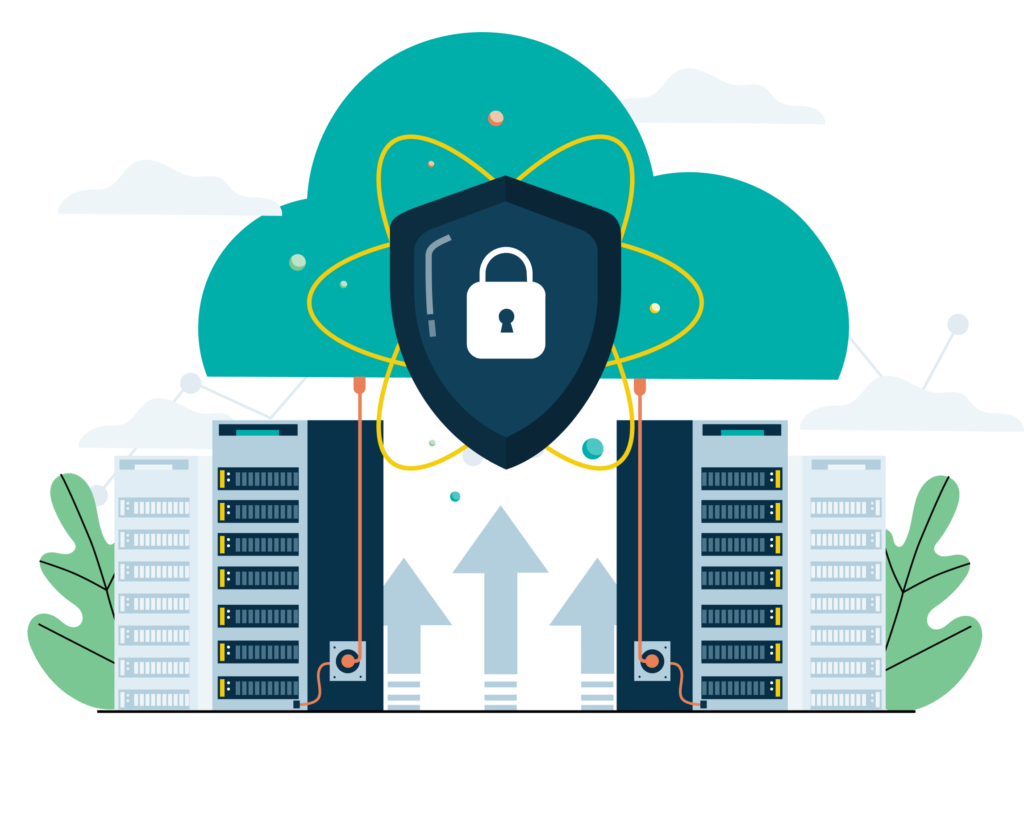Understanding Website and Mobile App Security
In today’s digital age, where websites and mobile applications have become integral parts of our daily lives, understanding the importance of security is paramount. From personal blogs to multinational corporations, every online entity is vulnerable to various cyber threats. In this article, we delve into the fundamentals of website and mobile app security, elucidating its definition and highlighting its significance in the ever-evolving digital landscape.
Definition of Website and Mobile App Security
Website and mobile app security refer to the protective measures implemented to safeguard the data, functionality, and integrity of websites and mobile applications. It encompasses a wide array of strategies, technologies, and best practices aimed at mitigating the risks posed by cyber threats such as malware, phishing attacks, and data breaches.
At its core, website and mobile app security involves the implementation of robust authentication mechanisms, encryption protocols, and access controls to ensure that only authorized users can access sensitive information and perform privileged actions. Additionally, security measures extend to the prevention and detection of unauthorized access, malicious code injection, and other forms of cyber attacks that can compromise the confidentiality, availability, and integrity of digital assets.
Importance of Security in the Digital Landscape
In an increasingly interconnected world where information is exchanged and transactions are conducted online, the importance of security cannot be overstated. Websites and mobile applications serve as conduits for the exchange of sensitive data, including personal information, financial details, and proprietary business data. Any compromise in security can have far-reaching consequences, both for individuals and organizations alike.
One of the primary reasons why security is essential in the digital landscape is the prevalence of cyber threats. Cybercriminals continuously devise new methods to exploit vulnerabilities in websites and mobile apps, ranging from sophisticated malware attacks to social engineering tactics. Without adequate security measures in place, individuals and businesses are susceptible to identity theft, financial fraud, and reputational damage.
Moreover, the regulatory landscape surrounding data privacy and security is becoming increasingly stringent. With regulations such as the General Data Protection Regulation (GDPR) and the California Consumer Privacy Act (CCPA) imposing strict requirements on the handling and protection of personal data, non-compliance can result in hefty fines and legal repercussions. Therefore, investing in robust security measures is not only prudent from a risk management perspective but also essential for maintaining regulatory compliance.
Furthermore, the importance of security extends beyond protecting sensitive data. It also encompasses preserving the trust and confidence of users. In an era where data breaches and cyber attacks regularly make headlines, consumers are becoming more discerning about the security practices of the websites and mobile apps they interact with. Organizations that prioritize security not only mitigate the risk of financial losses and legal liabilities but also foster trust and loyalty among their user base.
Common Threats to Website and Mobile App Security
Security of websites and mobile applications has become a critical concern. Unfortunately, along with the convenience and connectivity that the internet brings, there also comes the risk of malicious actors exploiting vulnerabilities to compromise the security of these platforms. These are some of the common threats to website and mobile app security, shedding light on the dangers posed by malware, phishing attacks, and data breaches.
Malware: The Silent Threat Lurking Online
Malware, short for malicious software, encompasses a broad category of software programs designed to infiltrate, damage, or gain unauthorized access to computer systems. From viruses and worms to trojans and ransomware, malware comes in various forms, each with its own destructive capabilities.
One of the most insidious aspects of malware is its ability to operate stealthily, often going undetected by users until it’s too late. Once installed on a device, malware can wreak havoc by stealing sensitive information, corrupting files, and even hijacking control of the system. In the context of websites and mobile apps, malware poses a significant threat to both users and businesses, as it can compromise the integrity of the platform and put sensitive data at risk.
To protect against malware, it’s essential for individuals and organizations to implement robust security measures, including installing reputable antivirus software, keeping systems and software up to date, and exercising caution when downloading files or clicking on suspicious links. Additionally, regular security audits and scans can help detect and mitigate potential malware infections before they cause significant harm.
Phishing Attacks: Deceptive Tactics Exploiting Human Vulnerabilities
Phishing attacks are another prevalent threat to website and mobile app security, relying on social engineering tactics to deceive users into divulging sensitive information such as passwords, credit card numbers, or personal identification details. These attacks typically involve the use of deceptive emails, messages, or websites designed to mimic legitimate entities, thereby tricking unsuspecting individuals into providing their confidential information.
What makes phishing attacks particularly dangerous is their ability to exploit human vulnerabilities, such as trust and curiosity. Cybercriminals often craft convincing phishing emails that appear to originate from trusted sources, enticing recipients to click on malicious links or download harmful attachments. Once victims fall prey to these tactics, their personal and financial information may be compromised, leading to identity theft, financial fraud, or other forms of cybercrime.
To guard against phishing attacks, it’s crucial for users to exercise vigilance and skepticism when interacting with online communications. This includes verifying the legitimacy of emails and websites, avoiding clicking on suspicious links or attachments, and being cautious about sharing sensitive information online. Furthermore, organizations can implement email filtering and authentication mechanisms to help detect and block phishing attempts before they reach end-users.
Data Breaches: Risks to Confidential Information
Data breaches represent one of the most significant threats to website and mobile app security, posing risks to the confidentiality, integrity, and availability of sensitive information. Whether due to cyber attacks, insider threats, or accidental exposure, data breaches can have far-reaching consequences for individuals and organizations alike.
In the aftermath of a data breach, sensitive data such as personal information, financial records, or proprietary business data may be exposed to unauthorized parties, leading to identity theft, financial losses, or reputational damage. Moreover, the legal and regulatory implications of data breaches can be severe, with organizations facing potential fines, lawsuits, and damage to their brand reputation.
To mitigate the risks of data breaches, organizations must adopt a proactive approach to security, implementing robust encryption protocols, access controls, and data loss prevention mechanisms. Additionally, regular security assessments and audits can help identify and remediate vulnerabilities before they are exploited by malicious actors. By prioritizing the protection of sensitive data and implementing comprehensive security measures, businesses can safeguard their assets and uphold the trust and confidence of their stakeholders.
Real-World Examples of Security Breaches
Security breaches have become an all-too-frequent occurrence, highlighting the inherent vulnerabilities of our interconnected world. From multinational corporations to small businesses and individual users, no one is immune to the threat of cyberattacks. Here are some examples of real-world security breaches, examining the impact and lessons learned from high-profile incidents.
Case Study: Target’s Massive Data Breach and Its Ramifications
In late 2013, retail giant Target fell victim to one of the most significant data breaches in history, affecting millions of customers across the United States. Hackers gained unauthorized access to Target’s systems through a third-party vendor, exploiting vulnerabilities in the company’s network infrastructure. As a result, sensitive information such as credit card numbers, names, and addresses of approximately 40 million customers was compromised.
The ramifications of the Target data breach were far-reaching, extending beyond financial losses to encompass damage to the company’s reputation and consumer trust. In addition to facing legal repercussions and regulatory fines, Target incurred substantial costs related to cybersecurity enhancements and remediation efforts. The incident served as a wake-up call for businesses worldwide, underscoring the importance of robust cybersecurity measures and proactive risk management.
The Equifax Debacle: A Lesson in Data Protection Failures
In 2017, Equifax, one of the largest credit reporting agencies in the United States, experienced a massive data breach that exposed the personal information of over 147 million individuals. The breach was attributed to a failure to patch a known vulnerability in Equifax’s web application framework, allowing hackers to exploit the flaw and gain access to sensitive consumer data.
The Equifax debacle highlighted the critical importance of timely patching and vulnerability management in safeguarding against cyber threats. In addition to the financial and reputational damage incurred by Equifax, the breach raised concerns about the security practices of credit reporting agencies and the protection of consumers’ personal information. The incident prompted calls for greater transparency, accountability, and regulatory oversight in the handling of sensitive data.
Notable Mobile App Security Breaches and Their Impact
Mobile apps have become an integral part of our daily lives, providing convenience and connectivity at our fingertips. However, the proliferation of mobile apps has also opened up new avenues for cyber attacks, with malicious actors targeting vulnerabilities in app infrastructure and user devices.
In recent years, several high-profile mobile app security breaches have made headlines, underscoring the need for enhanced security measures in the mobile ecosystem. From banking apps to social media platforms, no app is immune to the threat of exploitation. Whether through insecure data storage, inadequate authentication mechanisms, or unencrypted communications, mobile app vulnerabilities can expose users to identity theft, financial fraud, and other forms of cybercrime.
To mitigate the risks of mobile app security breaches, developers must prioritize security throughout the app development lifecycle, from design and coding to testing and deployment. This includes implementing robust authentication protocols, encrypting sensitive data, and regularly updating and patching app software. Additionally, users should exercise caution when downloading and using mobile apps, ensuring that they only install reputable apps from trusted sources and keeping their devices up to date with the latest security patches.
Understanding the Impacts of Inadequate Security Measures
The importance of strong security measures cannot be overstated. From protecting sensitive data to maintaining trust and confidence among stakeholders, adequate security is critical to the integrity and viability of businesses and individuals. There are several examples of the impact of inadequate security measures, exploring the immediate consequences of financial loss, the long-term effects of reputational damage, and the legal consequences of non-compliance with regulatory standards.
Financial Losses: The Immediate Consequences
One of the most immediate and tangible impacts of inadequate security measures is the risk of financial losses. In the event of a security breach or cyber attack, businesses may incur direct costs such as legal fees, regulatory fines, and expenses related to remediation efforts. Additionally, there may be indirect costs associated with the loss of customers, decreased sales, and damage to brand reputation.
For example, a data breach resulting in the exposure of sensitive customer information can lead to costly legal battles and class-action lawsuits. Moreover, the fallout from a security incident may extend beyond the initial breach, with ongoing expenses related to security upgrades, monitoring, and incident response.
Reputational Damage: Long-Term Effects on Brand Trust
In addition to the immediate financial impact, inadequate security measures can also have long-term consequences for brand trust and reputation. In today’s hyper-connected world, news of a security breach spreads quickly through social media and news outlets, amplifying the negative publicity and eroding consumer confidence.
When customers lose trust in a brand’s ability to protect their data, they are less likely to engage with the company or make purchases, resulting in lost revenue and diminished market share. Moreover, the reputational damage caused by a security incident can be difficult to repair, requiring significant investments in marketing and public relations efforts to rebuild trust and restore confidence among stakeholders.
Legal Ramifications: Compliance and Regulatory Issues
Beyond the financial and reputational impacts, inadequate security measures can also expose businesses to legal liabilities and regulatory scrutiny. With the proliferation of data privacy laws and regulations, such as the General Data Protection Regulation (GDPR) and the California Consumer Privacy Act (CCPA), companies are held to increasingly stringent standards for the protection of sensitive information.
Failure to comply with these regulations can result in severe penalties, including hefty fines, legal fees, and court-ordered damages. Moreover, non-compliance with regulatory standards can tarnish a company’s reputation and undermine its relationships with customers, partners, and investors.
To mitigate the risks of legal ramifications, businesses must prioritize compliance with data protection laws and regulations, implementing robust security measures and risk management practices to safeguard sensitive information. By taking proactive steps to protect data and uphold regulatory standards, organizations can minimize their exposure to legal liabilities and preserve trust and confidence among stakeholders.
The impacts of inadequate security measures are multifaceted, encompassing financial losses, reputational damage, and legal ramifications. By understanding the potential consequences of security breaches and taking proactive steps to enhance security posture, businesses can protect themselves against the ever-evolving threat landscape and safeguard the interests of their stakeholders. Through investment in security technologies, employee training, and regulatory compliance efforts, organizations can mitigate risks and build a resilient and trusted brand in an increasingly digital world.
Proactive Security Measures: A Necessity, Not an Option
With cyber threats lurking around every corner, proactive security measures have become a critical necessity for businesses and individuals alike. From protecting sensitive data to safeguarding against malicious attacks, taking a proactive approach to security is essential to mitigate risk and ensure the integrity and resilience of digital assets. Here are some examples of proactive security measures, highlighting the importance of risk assessment and vulnerability management, building a culture of security awareness, and investing in robust security technologies and practices.
Importance of Risk Assessment and Vulnerability Management
Risk assessment and vulnerability management form the cornerstone of effective cybersecurity strategies, providing insights into potential threats and vulnerabilities that may compromise the security of digital assets. By conducting thorough risk assessments, organizations can identify and prioritize security risks based on their likelihood and potential impact, allowing them to allocate resources effectively and implement targeted security measures.
Vulnerability management, on the other hand, involves the ongoing process of identifying, prioritizing, and remedying security vulnerabilities in systems and applications. This includes regularly scanning and testing networks and software for vulnerabilities, applying patches and updates in a timely manner, and implementing controls to mitigate risks effectively.
By adopting a proactive approach to risk assessment and vulnerability management, organizations can identify and address security weaknesses before they are exploited by malicious actors, reducing the likelihood and impact of security breaches and data compromises.
Building a Culture of Security Awareness
In addition to technical safeguards, building a culture of security awareness is essential for fostering a proactive approach to cybersecurity. Employees are often the first line of defense against cyber threats, making security awareness training a critical component of any cybersecurity program.
Security awareness training educates employees about the various types of cyber threats, such as phishing attacks, malware infections, and social engineering tactics, and teaches them how to recognize and respond to potential security risks. By raising awareness about the importance of security best practices, such as strong password management, safe browsing habits, and reporting suspicious activities, organizations can empower employees to play an active role in protecting against cyber threats.
Furthermore, fostering a culture of security awareness requires ongoing reinforcement and support from leadership, with regular training sessions, communication campaigns, and incentives to promote a security-conscious mindset among employees at all levels of the organization.
Investing in Robust Security Technologies and Practices
Finally, investing in robust security technologies and practices is essential for maintaining a proactive security posture in today’s threat landscape. This includes deploying advanced security solutions such as firewalls, intrusion detection and prevention systems, endpoint security software, and encryption technologies to protect against a wide range of cyber threats.
Additionally, organizations should implement best practices for secure coding, configuration management, and access control to minimize the risk of security breaches and data compromises. This includes following industry standards and frameworks such as the National Institute of Standards and Technology (NIST) Cybersecurity Framework and the Payment Card Industry Data Security Standard (PCI DSS) to guide security initiatives and ensure compliance with regulatory requirements.
By investing in robust security technologies and practices, organizations can stay ahead of emerging threats and vulnerabilities, reduce the likelihood of security incidents, and protect the confidentiality, integrity, and availability of critical assets and information.
Proactive security measures are essential for mitigating risks and safeguarding against cyber threats in today’s digital landscape. By prioritizing risk assessment and vulnerability management, building a culture of security awareness, and investing in robust security technologies and practices, organizations can enhance their security posture and protect against evolving cyber threats effectively. Through a proactive approach to cybersecurity, businesses and individuals can minimize the impact of security breaches and ensure the integrity and resilience of their digital assets now and in the future.
Best Practices for Improving Website and Mobile App Security
Ensuring website and mobile app security is critical. Cyber threats are constantly evolving, making it imperative for individuals and businesses to adopt best practices to improve security. There are several effective strategies to improve website and mobile app security, including implementing secure coding practices, conducting regular security audits and updates, using multi-factor authentication, protecting data through encryption, and empowering users through education.
Implementing Secure Coding Practices
Secure coding practices are fundamental to creating resilient websites and mobile applications. By adhering to security best practices during the development phase, developers can significantly reduce the risk of vulnerabilities that could be exploited by malicious actors.
Key aspects of secure coding include:
- Input Validation: Ensuring that all user inputs are validated to prevent common vulnerabilities such as SQL injection and cross-site scripting (XSS).
- Authentication and Authorization: Implementing robust authentication mechanisms to verify user identities and authorization controls to restrict access to sensitive data and functionalities.
- Error Handling: Properly handling errors to avoid exposing sensitive information through error messages.
- Code Reviews and Static Analysis: Regularly conducting code reviews and using static analysis tools to identify and rectify potential security issues early in the development process.
By embedding security into the software development lifecycle, developers can create more secure applications that are resilient to attacks.
Regular Security Audits and Updates
Conducting regular security audits and updates is crucial for maintaining the security of websites and mobile apps. Security audits help identify vulnerabilities and weaknesses in the system, providing an opportunity to address them before they can be exploited.
Steps for effective security auditing and updating include:
- Periodic Vulnerability Assessments: Regularly scanning the system for vulnerabilities and addressing them promptly.
- Patch Management: Keeping software, libraries, and frameworks up to date with the latest security patches and updates.
- Penetration Testing: Engaging in penetration testing to simulate attacks and identify potential entry points that could be exploited by attackers.
- Monitoring and Logging: Implementing robust monitoring and logging mechanisms to detect and respond to suspicious activities in real-time.
By staying vigilant and proactive through regular audits and updates, organizations can strengthen their security posture and reduce the risk of breaches.
Multi-Factor Authentication: Adding Layers of Protection
Multi-factor authentication (MFA) adds an extra layer of security by requiring users to provide two or more forms of verification before accessing an account or system. This significantly reduces the likelihood of unauthorized access, even if a user’s password is compromised.
Common forms of MFA include:
- Something You Know: A password or PIN.
- Something You Have: A smartphone or hardware token.
- Something You Are: Biometric verification, such as a fingerprint or facial recognition.
Implementing MFA across all critical systems and applications enhances security by making it more difficult for attackers to gain access using stolen credentials.
Data Encryption: Safeguarding Sensitive Information
Data encryption is a critical security measure for protecting sensitive information both in transit and at rest. Encryption transforms data into an unreadable format that can only be deciphered with the correct decryption key, ensuring that even if data is intercepted, it cannot be read by unauthorized parties.
Key considerations for effective data encryption include:
- End-to-End Encryption: Ensuring data is encrypted from the point of origin to the point of destination.
- Encryption Protocols: Using strong encryption protocols such as AES (Advanced Encryption Standard) to protect data.
- Key Management: Implementing robust key management practices to secure encryption keys and prevent unauthorized access.
By prioritizing data encryption, organizations can protect sensitive information and comply with data protection regulations.
User Education: Empowering Users to Recognize and Avoid Threats
Educating users about security best practices is an essential component of a comprehensive security strategy. Users are often the weakest link in the security chain, and empowering them with knowledge can significantly reduce the risk of security incidents.
Key topics for user education include:
- Phishing Awareness: Training users to recognize and avoid phishing attempts, which are common methods for attackers to gain access to sensitive information.
- Password Hygiene: Encouraging the use of strong, unique passwords and the importance of changing them regularly.
- Safe Browsing Practices: Educating users about the risks of downloading untrusted software and the importance of verifying website authenticity.
Regular training sessions, awareness campaigns, and resources such as security newsletters can help keep users informed and vigilant.
In conclusion, As we’ve explored, ensuring the security of your website and mobile applications is paramount in today’s digital landscape. Whether you are protecting sensitive customer data, maintaining the integrity of your online services, or complying with regulatory requirements, robust security measures are non-negotiable. This is where choosing the right software development partner becomes crucial.
For businesses seeking a trusted partner to navigate these challenges, Softwareseni stands out as an exceptional choice. With over a decade of expertise in the software solutions industry, a team of more than 200 dedicated professionals, and a proven track record of over 1200 successful projects, Softwareseni is well-equipped to meet your unique digital needs.
About SoftwareSeni.
SoftwareSeni is software solutions with more than 10 years of expertise, with 200+ professional staff and more than 1200 projects delivered. SoftwareSeni empowers diverse industries – automotive, real estate, healthcare, education, F&B, hospitality, tourism, and more. We specialise in WordPress, Laravel, Node.js, React.js, NET. SoftwareSeni services include ecommerce website development, web app creation, mobile app development (Android & iOS), and developer team extension.
Why Choose SoftwareSeni?
1. Tailored Services to Suit Your Needs
We understand that every business has unique digital needs. With a range of customizable services, from Team Extension and Staff Augmentation to MVP Development, Custom Software Development, and Web, Mobile (Android & iOS) App, and E-commerce Development, we are ready to support your digital business transformation. Learn more about SoftwareSeni’s services
2. Solutions for Various Industries
We have extensive experience across various industries, including property, retail, automotive, media, healthcare, and more. Our diverse services enable us to be a trusted partner that can provide the right solutions for your industry needs. Learn more about SoftwareSeni’s solutions
3. Experienced Professional Team
With over 200 dedicated professional staff, we are ready to help you tackle every digital challenge. Our experience in managing over 1200 projects ensures that you get the best results from our team. Learn more about SoftwareSeni.
4. Trusted by Many Large Companies
Leading companies such as Astra Motor, Downsizing, RedBalloon, News.com.au, and many others have entrusted their digital transformation to us. Our experience in working with various large companies demonstrates our ability to deliver high-quality solutions. Learn more about SoftwareSeni’s portfolio
5. Commitment to Security and Quality
Security is our top priority. With ISO 27001 certification and being an official AWS Consulting Partner, we ensure that every project is developed to the highest security and quality standards. You can rest assured knowing that your digital systems are in good hands. Learn more about SoftwareSeni’s Commitment to Security
Join Us and Transform Your Business!
Don’t let your business fall behind in this digital era. Choose SoftwareSeni as your digital partner and enjoy services tailored to your needs, supported by a professional team, as well as reliable and secure solutions. Contact us today and start your digital journey confidently.












